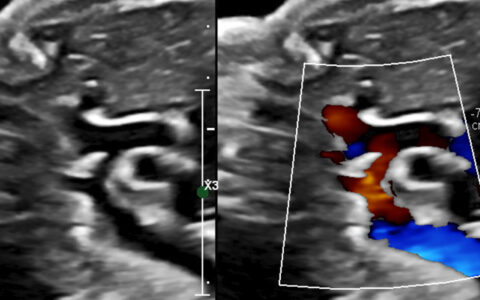No standard protocols exist for how to treat fetuses and neonates with congenital arrhythmias, however, the American Heart Association has recently issued a scientific statement providing an overview of best practices.
As director of the Center for Pediatric Precision Medicine at Vanderbilt University Medical Center, Prince J. Kannankeril, M.D., served on the writing committee that issued the recommendations, which are based on available data and the consensus opinion of experts representing various relevant medical societies.
“People have used these treatments, and they have worked,” Kannankeril said, quoting the statement he helped author to address specific arrhythmias and specific dosing regimens for the two separate categories of patients.
The development of best practices recommendations for this cohort is in line with VUMC’s emphasis on precision medicine, he said.
“Fetuses and neonates are special populations in terms of how you diagnose and treat the arrhythmias,” Kannankeril said. “We have a lot more options in terms of treating neonates.”
Practical Recommendations
Although the statement does not specify formal treatment guidelines, it can serve a similar role for the pharmacological management of cardiac arrhythmias in the fetus and neonate, Kannankeril explained.
“For the various arrhythmias, we describe the medications to consider and specific dosing regimens for the fetus and the neonate.”
The statement addresses supraventricular tachycardia, atrial flutter, different forms of atrioventricular block, and ventricular tachycardia in the fetus. It also describes specific considerations concerning pharmacology in the fetus and neonate.
“For the various arrhythmias, we describe the medications to consider and specific dosing regimens for the fetus and the neonate,” Kannankeril said.
Suggestions and further questions to pursue in particular cases are included.
In one example, when dealing with ventricular tachycardia, the guidelines say: “it is important to evaluate the fetal heart for ventricular tumors and diverticulum and to identify whether long QT syndrome is causative for VT… Questioning the family for a history of long QT syndrome and obtaining ECGs on the parents can be helpful.”
Many Are Benign
“Clinically significant fetal and neonatal arrhythmias occur in approximately 1 per 4,000 live births and are an important cause of morbidity and mortality,” the authors wrote.
“It has to be effective for the fetus and safe for mom.”
While many fetal arrhythmias are benign, some are extremely serious, leading to low cardiac output, heart failure, hydrops and fetal death, Kannankeril said.
Pharmacologic treatments for fetal arrhythmias are generally administered to the mother and pass via the placenta to the fetus.
“It has to be effective for the fetus and safe for mom,” Kannankeril said.





